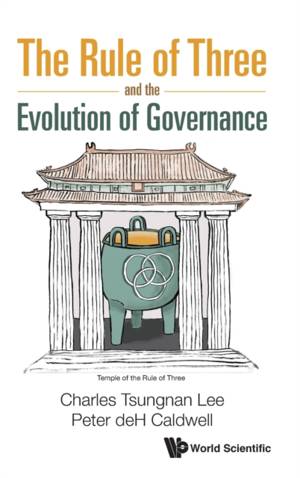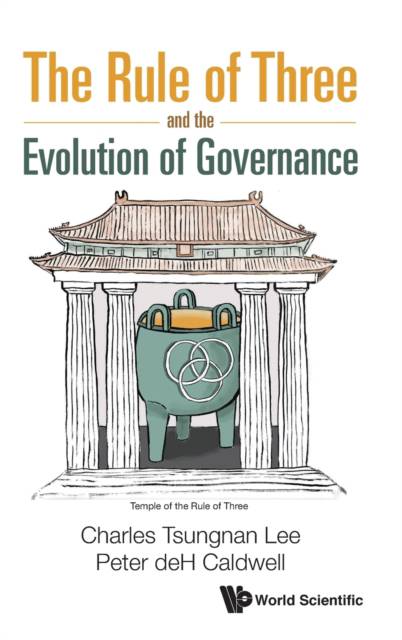
- Retrait gratuit dans votre magasin Club
- 7.000.000 titres dans notre catalogue
- Payer en toute sécurité
- Toujours un magasin près de chez vous
- Retrait gratuit dans votre magasin Club
- 7.000.000 titres dans notre catalogue
- Payer en toute sécurité
- Toujours un magasin près de chez vous
The Rule of Three and the Evolution of Governance
Charles Lee, Peter Deh Caldwell
Livre relié | Anglais
73,45 €
+ 146 points
Description
The changing relationship between East and West, principally between China and America, has brought the whole matter of achieving peaceful and harmonious relations between nations to the fore -- particularly with regard to China's recent ascendancy in world affairs. Competition among nations with different forms of governance raises important questions such as: What forms of governance work best to enable people to have harmonious and peaceful life together -- both within and amongst nations? What principles can we discover in human history that might point us toward some answers to this fundamental governance question? What might the answers from the past suggest about the future? Where might the future lead?To find answers to these questions, we set out upon a discovery adventure, going back some 30,000 years in time -- to trace the evolutionary progress in human governance from the hunter-gatherer period until today. We also adopted a framework provided by Dr Stephen Pinker's landmark study of the nature of violence over time entitled The Better Angels of Our Nature to provide context and contrast to our own discoveries.We discovered several basic principles: First, the forms of human governance made an evolutionary progress over the past 30,000 years. Second, the most basic driver for this progress was and still is technological change, which forces complementary changes in governance -- or seals institutional failure. Third, we discovered that just three basic factors determined whether a particular form of governance succeeded in flourishing as a tribe, nation, empire or nation-state. Those fundamental factors are: boundaries, founding mythology, and the Rule of Three.Indeed, our most fundamental finding has been the Rule of Three itself: the principle that says that dyads have inherently unstable natures, whereas triads -- like three-legged stools -- possess inherent stability. Throughout time, the most successful human arrangements have been those with intricate hierarchies of governance that have the Rule of Three deeply woven into each level.As for the future, we claim that the best international structure would take the symbolic form of an archipelago of nations interconnected with a system of bridges -- where each bridge consists of an intercourse route between two nations, and the nature of the intercourse is largely trade in goods and services followed by cultural exchanges of ideas. A Basic Principle: It is far easier to build bridges between nations than to rebuild nations in some other nation's image. Bad actors amongst nations may then get dealt with as villagers used to deal with nasty neighbors -- through shunning and shaming, where shunning means the ceasing of trade intercourse.
Spécifications
Parties prenantes
- Auteur(s) :
- Editeur:
Contenu
- Nombre de pages :
- 380
- Langue:
- Anglais
Caractéristiques
- EAN:
- 9789811228261
- Date de parution :
- 10-03-21
- Format:
- Livre relié
- Format numérique:
- Genaaid
- Dimensions :
- 152 mm x 229 mm
- Poids :
- 675 g







